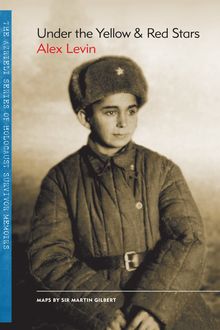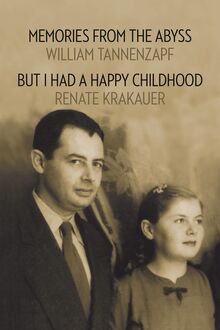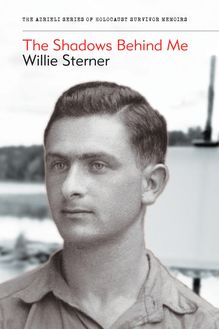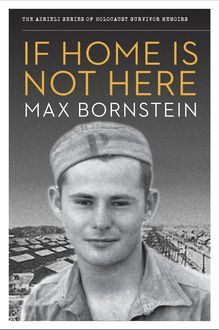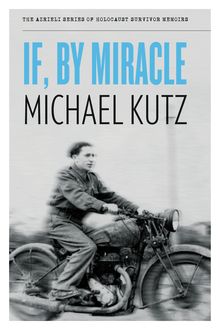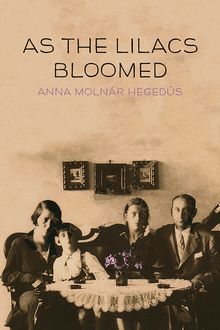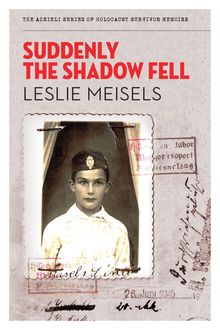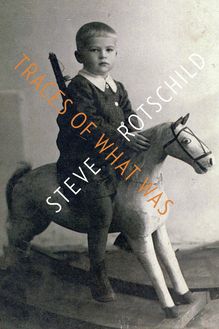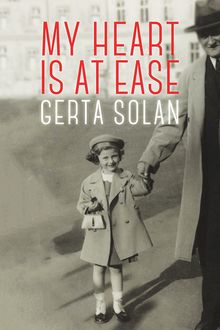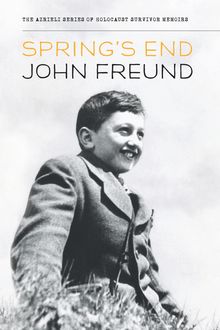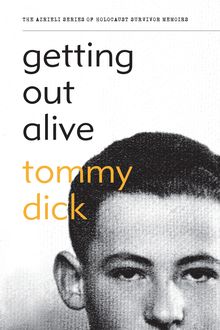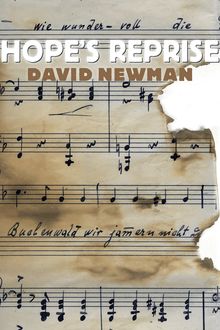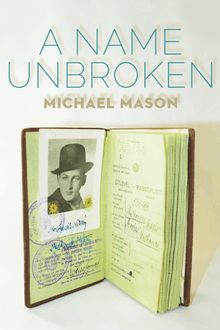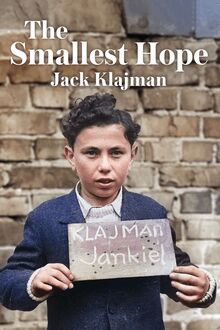-
 Univers
Univers
-
 Ebooks
Ebooks
-
 Livres audio
Livres audio
-
 Presse
Presse
-
 Podcasts
Podcasts
-
 BD
BD
-
 Documents
Documents
-
- Cours
- Révisions
- Ressources pédagogiques
- Sciences de l’éducation
- Manuels scolaires
- Langues
- Travaux de classe
- Annales de BEP
- Etudes supérieures
- Maternelle et primaire
- Fiches de lecture
- Orientation scolaire
- Méthodologie
- Corrigés de devoir
- Annales d’examens et concours
- Annales du bac
- Annales du brevet
- Rapports de stage
La lecture à portée de main
Vous pourrez modifier la taille du texte de cet ouvrage
Découvre YouScribe en t'inscrivant gratuitement
Je m'inscrisDécouvre YouScribe en t'inscrivant gratuitement
Je m'inscrisEn savoir plus
Vous pourrez modifier la taille du texte de cet ouvrage
En savoir plus

Description
Sujets
Informations
| Publié par | Azrieli Foundation |
| Date de parution | 01 septembre 2014 |
| Nombre de lectures | 2 |
| EAN13 | 9781897470794 |
| Langue | English |
| Poids de l'ouvrage | 1 Mo |
Informations légales : prix de location à la page 0,0300€. Cette information est donnée uniquement à titre indicatif conformément à la législation en vigueur.
Extrait
The Hidden Package
Claire Baum
The Azrieli Series of Holocaust Survivor Memoirs
Naomi Azrieli, Publisher
Jody Spiegel, Program Director
Arielle Berger, Managing Editor
Elizabeth Lasserre, Senior Editor, French-Language Editions
Aurélien Bonin, French-Language Educational Outreach and Events
Catherine Person, Quebec Educational Outreach and Events
Elin Beaumont, English-language Educational Outreach and Events
Tim MacKay, New Media and Marketing
Susan Roitman, Executive Assistant and Office Manager (Toronto)
Mary Mellas, Executive Assistant and Human Resources (Montreal)
Eric Bélisle, Administrative Assistant
Mark Goldstein, Art Director
François Blanc, Cartographer
Bruno Paradis, Layout, French-language editions
Contents
The Azrieli Series of Holocaust Survivor Memoirs
Series Preface: In their own words...
About the Glossary
Introduction
Epigraph
Dedication
Author’s Preface
Our Forgotten Past
The New Rules
Separation
To A Different Home
Danger Around Us
The Hunger Winter
Strangers at the Door
Epilogue
Our Family
Glossary
Photographs
Copyright
About the Azrieli Foundation
Also Available
Series Preface: In their own words...
In telling these stories, the writers have liberated themselves. For so many years we did not speak about it, even when we became free people living in a free society. Now, when at last we are writing about what happened to us in this dark period of history, knowing that our stories will be read and live on, it is possible for us to feel truly free. These unique historical documents put a face on what was lost, and allow readers to grasp the enormity of what happened to six million Jews – one story at a time.
David J. Azrieli, C.M., C.Q., M.Arch
Holocaust survivor and founder, The Azrieli Foundation
Since the end of World War II, over 30,000 Jewish Holocaust survivors have immigrated to Canada. Who they are, where they came from, what they experienced and how they built new lives for themselves and their families are important parts of our Canadian heritage. The Azrieli Foundation’s Holocaust Survivor Memoirs Program was established to preserve and share the memoirs written by those who survived the twentieth-century Nazi genocide of the Jews of Europe and later made their way to Canada. The program is guided by the conviction that each survivor of the Holocaust has a remarkable story to tell, and that such stories play an important role in education about tolerance and diversity.
Millions of individual stories are lost to us forever. By preserving the stories written by survivors and making them widely available to a broad audience, the Azrieli Foundation’s Holocaust Survivor Memoirs Program seeks to sustain the memory of all those who perished at the hands of hatred, abetted by indifference and apathy. The personal accounts of those who survived against all odds are as different as the people who wrote them, but all demonstrate the courage, strength, wit and luck that it took to prevail and survive in such terrible adversity. The memoirs are also moving tributes to people – strangers and friends – who risked their lives to help others, and who, through acts of kindness and decency in the darkest of moments, frequently helped the persecuted maintain faith in humanity and courage to endure. These accounts offer inspiration to all, as does the survivors’ desire to share their experiences so that new generations can learn from them.
The Holocaust Survivor Memoirs Program collects, archives and publishes these distinctive records and the print editions are available free of charge to libraries, educational institutions and Holocaust-education programs across Canada. They are also available for sale to the general public at bookstores. All revenues to the Azrieli Foundation from the sales of the Azrieli Series of Holocaust Survivor Memoirs go toward the publishing and educational work of the memoirs program.
The Azrieli Foundation would like to express appreciation to the following people for their invaluable efforts in producing this book: Sherry Dodson (Maracle Press), Sir Martin Gilbert, Farla Klaiman, Andrea Knight, Jason Logan, Therese Parent, and Margie Wolfe and Emma Rodgers of Second Story Press.
About the Glossary
The following memoir contains a number of terms, concepts and historical references that may be unfamiliar to the reader. For information on major organizations; significant historical events and people; geographical locations; religious and cultural terms; and foreign-language words and expressions that will help give context and background to the events described in the text, please see the Glossary .
Introduction
Claire Baum’s extraordinary memoir, The Hidden Package , tells the important story of life and resistance in an occupied country during the Holocaust. Seeking to leave a legacy, she explores “what it was like to be a hidden child during World War II ,” and does so on multiple levels – from her perspective as a hidden child and from the standpoint of her biological parents and her wartime parents. There are several famous stories of hiding – The Diary of Anne Frank and Corrie Ten Boom’s The Hiding Place are two well-known examples – yet it is both jolting and profoundly moving to read a direct account from those hidden. I felt a personal connection with Claire’s story because my maternal grandparents, now long deceased, worked with the Dutch Resistance to hide Jewish families. Unfortunately, the details of their endeavours remain sketchy and my mother doesn’t remember the names or faces of the various individuals and families her parents helped. Nonetheless, she clearly remembers that members of the Dutch Jewish community were well cared for by her mother and that they were safely hidden whenever the SS searched the house, which occurred as often as several times weekly, in a false floor between the first and second storeys, where the leather for her father’s shoemaking shop was stored. 1
Claire Baum, in her moving account, tells us the other side of the story: what it was like to be the hidden. Claire and her sister, Ollie, found refuge with the Duchene family and, later, with Nel Van Woudenberg, whom they called “Tante Nel,” for two-and-a-half years. They experienced some measure of stability during these unstable times, but for Claire and Ollie, remembering this time came at a price. When their wartime letters to their parents, Rudolph and Sophia Friedberg, were found some forty years later, the women had to confront their past, fully recognizing that seeing their handwritten “diary” would open a whole world that had, until then, remained deeply buried. Despite the fact that they kept in touch with Tante Nel until her death in 2006, some of what they experienced during that difficult time had been blocked out, no doubt both consciously and unconsciously.
This reaction is not surprising. Many child survivors worked hard to “forget” those years. Spending their energy looking forward, focusing on their new lives – especially those who left the Netherlands for Canada or elsewhere – they were able to immerse themselves in learning new customs, often a new language, and establishing themselves in a novel and faraway community. Claire avoided the trauma inherent in remembering her wartime experiences for years, but came to see the benefits to herself, survivors and the wider community – recording and speaking about one’s past can help encourage education about tolerance, compassion, understanding and empathy.
Claire Baum’s memoir makes it clear that even in the most painful and cruel situations, love and luck sometimes come through. Claire and Ollie were fortunate to be taken in by Tante Nel, who not only treated them as her own and gave them a safe haven, but also encouraged them to write to their parents, thus ensuring that they remained alive in their hearts and minds. Claire and Ollie were physically separated from their mother and father but they never questioned their love, which was inherent in their decision to hide the children separately, ensuring that they were as far out of harm’s way as possible.
Even under lucky circumstances, the trauma experienced by many Jewish children as a result of having been hidden is significant. According to Dutch-Jewish child psychologist Dr. Bloeme Evers-Emden, who pioneered research into hidden children, the “psychological and practical consequences” on children were many and varied. Having to adapt to new surroundings and new people very quickly was tough on young children. Some were moved around multiple times and, due to mistrust, found it increasingly difficult to form attachments after the initial separation. When some children returned home, they had trouble reconnecting with their biological parents. As Evers-Emden writes, “Often the hidden children had had to change addresses several times, leading them to ‘turn off their feelings’ so as not to be overwhelmed by grief. After the war, many of them could not ‘turn on’ their feelings.” 2
Claire’s parents did not speak to her about their past, yet they too must have suffered. Many parents of hidden children experienced “anticipated mourning” – a certainty that they or their children would be killed before they could reunite. Sometimes the biological parents could not “forgive” the “
-
 Univers
Univers
-
 Ebooks
Ebooks
-
 Livres audio
Livres audio
-
 Presse
Presse
-
 Podcasts
Podcasts
-
 BD
BD
-
 Documents
Documents
-
Jeunesse
-
Littérature
-
Ressources professionnelles
-
Santé et bien-être
-
Savoirs
-
Education
-
Loisirs et hobbies
-
Art, musique et cinéma
-
Actualité et débat de société
-
Jeunesse
-
Littérature
-
Ressources professionnelles
-
Santé et bien-être
-
Savoirs
-
Education
-
Loisirs et hobbies
-
Art, musique et cinéma
-
Actualité et débat de société
-
Actualités
-
Lifestyle
-
Presse jeunesse
-
Presse professionnelle
-
Pratique
-
Presse sportive
-
Presse internationale
-
Culture & Médias
-
Action et Aventures
-
Science-fiction et Fantasy
-
Société
-
Jeunesse
-
Littérature
-
Ressources professionnelles
-
Santé et bien-être
-
Savoirs
-
Education
-
Loisirs et hobbies
-
Art, musique et cinéma
-
Actualité et débat de société
- Cours
- Révisions
- Ressources pédagogiques
- Sciences de l’éducation
- Manuels scolaires
- Langues
- Travaux de classe
- Annales de BEP
- Etudes supérieures
- Maternelle et primaire
- Fiches de lecture
- Orientation scolaire
- Méthodologie
- Corrigés de devoir
- Annales d’examens et concours
- Annales du bac
- Annales du brevet
- Rapports de stage

